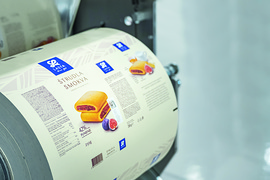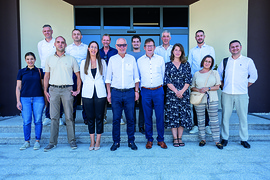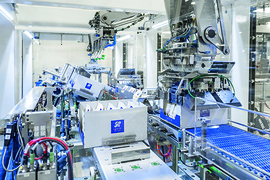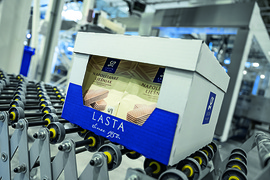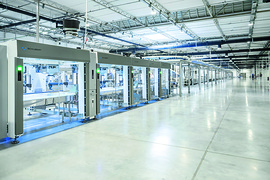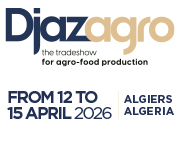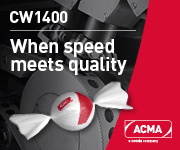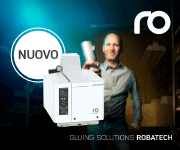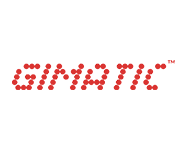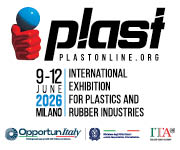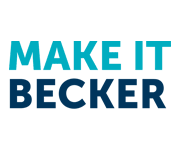Schubert, a complete bakery production in the Balkans
When Violeta, the manufacturer of cosmetics and hygiene products, acquired long-established biscuit producer Lasta, located in the southwest region of Bosnia and Herzegovina, Schubert provided support not only with its line technology for the sweet baked goods, but also with a great deal of expertise and packaging development.
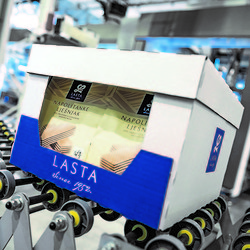
Violeta has extensive know-how in the production of napkins and detergents, floor cleaners and nappies, feminine hygiene products and shampoo – but biscuits and wafers were new territory for all its employees. There was another issue as well: taking over old equipment and production processes was not an option for Violeta. They wanted state-of-the-art equipment that would ensure that Lasta could reboot under the best possible conditions.
After extensive research and the identification of three possible suppliers for new packaging systems, the Crailsheim-based machine manufacturer prevailed over the competition. These were the best prerequisites for achieving the objective stated from the outset: to produce baked goods that live up to the traditional Lasta name.
The focus is on two types of baked goods: filled biscuit rolls and filled hollow wafers, in different flavours such as fig or chocolate. Violeta wanted a packaging solution from Schubert that could guarantee high flexibility in the processing of different baked goods, fast format changes, as well as high performance and the handling of large quantities – capabilities that have proven themselves in the production of cosmetics and hygiene products. Additionally, the packaging line had to offer high mechanical stability to enable long service lives even with heavy-duty utilisation. And finally, the personnel situation also had an impact on the specifications: Unskilled operators would need to be able to operate the line just as reliably as skilled personnel.
In practical terms, a variety of display cartons, cardboard trays, together with both single-pack and multi-pack flowpacks were initially required, and they had to be as sustainable as possible. In addition to the newly developed display cartons, the packaging development department also created a sustainable design for cardboard trays with dividers. Even for the flowpacks, Schubert succeeded in making paper-based packaging material possible thanks to its flexible sealing technologies in the flowpacker: The single-pack flowpacks consist of a composite cold-seal film, the multipack flowpacks of paper-based film that is also cold-sealed. In terms of equipment, three robot-assisted machines were supplied: a flowpacker, a cartoner and a casepacker.
Since the installation and commissioning of the Schubert machines, the biscuit rolls and wafers have been running from two ovens into the flowpacker. In a counterflow process, pick & place robots place the sweet baked goods into cardboard trays, which are then packed into multipack flowpacks made of paper-based film. All packaging units run through a checkweigher on their way from the flowpacker to the cartoner. Only after passing this important quality assurance step are the individual flowpacks or multipacks packed into display cartons by the cartoner. The excess product from the flowpacker is further packed in an additional pouch packer. Finally, Schubert's casepacker, as the last station, is responsible for packing the pouches into display cartons with lids.
The packaging machine manufacturer took advantage of the opportunity to explore the limits of processing paper-based films and succeeded in achieving a significant increase: instead of the previous 20, up to 44 metres per minute are possible without any loss of quality in the packaging. The casepacker for packing the pouches was also modified to be able to fully cover the maximum output of the ovens even without the flowpacker: thanks to a new format tool, the Schubert designers were able to increase output from 80 pouches per minute to a maximum of 110 pouches (beginning in 2023). The additional output in all packaging processes is an ideal platform for Lasta to take on eventual production expansions. Because an increase in production is planned, the Schubert line currently fills only half of Lasta’s hall: Another oven will be built, including a new packaging line.
Topic: Case history
Prodotti e tecnologie: GERHARD SCHUBERT
Gallery


